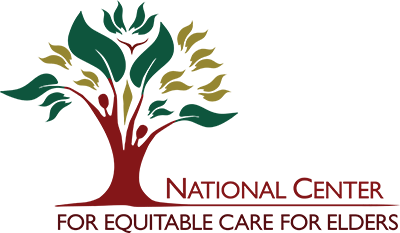About
Through support from the Health Resources & Services Administration, NCECE provides free learning activities to educate and support existing and potential health center grantees and look-alikes. These Learning Collaboratives provide participants helpful information that addresses specialized topics.
Attendees are encouraged to provide us comments and questions before each session. Our team of NCECE faculty and subject matter experts lead these peer-to-peer sessions to provide health centers with the knowledge and training to better serve older adult patients. Attendees can access each live, web-based Learning Collaborative session via smartphone, tablet, or desktop computer.
To learn more about Learning Collaboratives and other HRSA-funded Training and Technical Assistance, visit the Health Resources & Services Administration website.
Applying to NCECE Learning Collaboratives
HRSA-funded health center and health center program look-alike personnel are encouraged to apply for enrollment in our free Learning Collaboratives. If you are unsure if your organization is a HRSA-funded health center or look-alike, you can check out HRSA's Find a Health Center resource or contact us for clarification before applying.
Upcoming/Ongoing Learning Collaboratives
April/May 2024: Leveraging Local Strengths to Improve Older Adult Health & Well-Being
Past Learning Collaboratives and Resources
October/November 2023: Partnering with Older Adults for Chronic Disease Management
May 2023: Advancing Health By Addressing the Needs of Aging Agricultural & Other Essential Workers
March 2023: Diabetes in Special and Vulnerable Populations: Learning Collaboratives
February 2023: Promoting Age-friendly Environments: Critical Determinants of Health
November/December 2022: Motivating Healthy Habits in Older Adults
October/November 2022: Partnering with Family Caregivers of Older Adults
April/May 2022: Addressing Social Determinants of Health Through Community-Based Palliative Care
April 2022: Improving Rural Health Equity
January-February 2022: Diabetes in Special and Vulnerable Populations: Learning Collaboratives
January/February 2022: Supporting Family Caregivers of Older Adults with Dementia
November/December 2021: Motivating Healthy Habits in Older Adults
April/May/June 2021: Aging with Respect: A Framework for Addressing Intimate Partner Violence in Older Adults Learning Collaborative
April 2021: Building Capacity for Care Coordination Through PACE Learning Collaborative
January-March 2021: Diabetes in Special & Vulnerable Populations Learning Collaboratives
November and December 2020: Motivating Healthy Habits in Older Adults
October 2020: Supporting Family Caregivers of Older Adults with Dementia
June 2020: Emergency Preparedness for Community-Dwelling Older Adults
April-May 2020: Social Isolation and Supportive Services
April 2020: Adverse Interpersonal Relationships in Older Adults
Spring 2020: The SDOH Academy
October 2019 - February 2020: Primary Palliative Care
October 2019 - January 2020: Implementing Blood Glucose and HbA1c Testing at the Dental Provider
October - November 2019: Nutritional Issues for Older Adult Patients with Diabetes
March - April 2019: Addressing Common Geriatric Syndromes Associated with Diabetes
March - April 2019: Developing an Environmental Scan of Social and Enabling Services for Older Adults
November 2018 - January 2019: Improving the Quality of End of Life Care for Older Adults in Health Centers
November 2018 - January 2019: Substance Use Disorders (SUD) and Addictions among Older Adults in Health Centers
May 2018: Care Coordination Models for Elders with Diabetes and other Chronic Conditions
April - June 2018: Integrating Primary Care, Oral Health and Behavioral Health for Older Adults
Share Your Feedback
Have an idea for a topic for a future Learning Collaborative? Let us know! We encourage existing and potential health center grantees and look-alikes interested in learning more about the Training and Technical Assistance we offer to contact us for more information.
